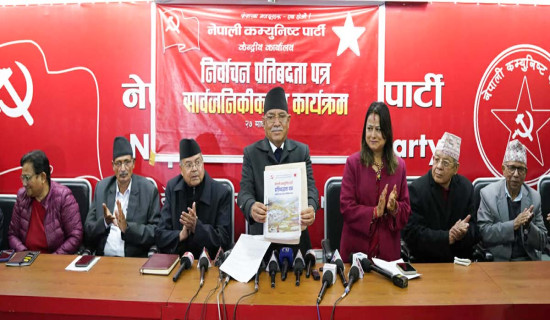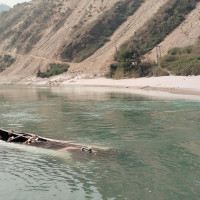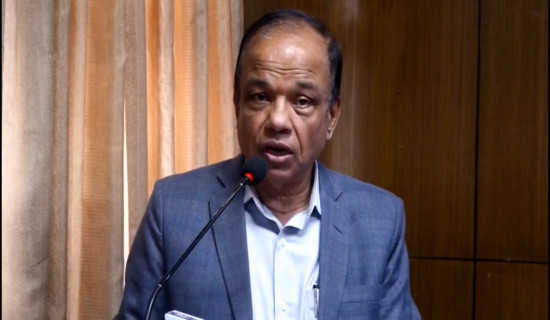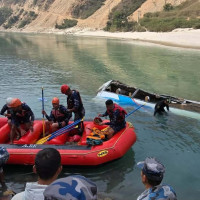- Wednesday, 11 February 2026
Lessons From The Gen Z Movement
When the country was in flames, this columnist, who gets to feature rarely in the golden pages of our publications for want of knowledge, experience, wisdom and what not, was halfway into the much-celebrated ‘Why Nations Fail’. In their seminal work, Daron Acemoglu and James A Robinson set out to find out how two places that share an ethnic background, a geographic location and a climate could be so different by conducting a study of the town of Nogales divided by a fence between the United States and Mexico.
What did the two scholars find? The inhabitants on the northern side (the US) face lower crime rates, live longer and earn three times as much as their southern (Mexican) neighbours. The observation is too close to home, isn’t it? Darchula and Dharchula, Pashupatinagar and Darjeeling, Dhangadhi and Gauriphanta, Korala and Nechung–Liji market (Tibet), Kimathanka and Chentang (Tibet), Limi and Purang are some of our Nogaleses, aren’t they?
Anti-corruption
Why do nations fail? This question kept hitting the mind of this small-time columnist living in a megacity during his walks from Tripureshwar to New Baneshwar via Maitighar on September 8, in the midst of a Gen Z movement against corruption, nepotism, bad governance and an ill-timed crackdown on social media.
Scenes of fancy bikes sounding like blazing guns roaring across the Maitighar-Baneshwar stretch, protesters shouting their lungs out, telling corrupt leaders to leave the country and scenes of firing that killed scores of protesters keep coming. Looking back, the youths aged between 13 and 28 years were energised by their collective dream of a national transformation that has eluded this country with enough resources to feed its national population and set its economy on a growth trajectory, pushing it decades back on the path of progress, prosperity and fulfillment.
Torching of buildings housing the three vital organs of the state and outlets of the fourth estate, along with business-industrial complexes, jailbreaks, mobsters wielding guns looted from security personnel and incidents of looting that followed the next day form part of a long nightmare that will probably remain etched in the memory of generations old and new.
Mass movements and change in the space of a decade or so have become a constant for Nepal since 1950. After every movement, a new crop of leaders comes to power and gets corrupt to the core as it seeks to compensate for years of struggle for higher ideals, fuelling a fresh uprising and toppling of another regime as our descent into a bottomless pit continues amid hollow calls from our political leadership to benefit from our two neighbours that have been rising and shining since the 1950s like never before.
Days after the loss of lives and properties, days after utter chaos and anarchy, a caretaker government is in place — expecting it to fire on all four cylinders in its nascent days will be asking for too much — with a mandate to conduct elections within six months, and national healing seems to have begun. There’s some semblance of order on the road, devoid of basic infra like traffic islands, with the return of traffic police personnel to duty, even as the nightmarish scene of comic dances here and there of comic figures donning traffic police uniform keeps coming.
The judiciary has begun functioning from its new headquarters — tents — on the precincts of its historic, imposing, partially burnt down building, while the legislature — automatically dissolved after the formation of a new administration — has the speaker of the House of Representatives and the chair of the National Assembly in office.
Beleaguered leadership
Still, not much has come from the beleaguered leadership of the major political parties that have remained at the helm of affairs of Nepal for decades on end, playing a colossal role in bringing this wonderful country to a difficult pass. Will our top brass ever bother to address the nation for the sake of posterity? Or are they still in denial? Hurt that they won’t be able to continue their rule till the proverbial cows come home?
Marcus Aurelius likens the court—the affairs of the state—to the stepmother and philosophy to the mother. Thrown out of the stepmother’s lap, have our leaders found refuge in their mother’s lap? While waiting to hear from them, let this humble columnist leave for now with nuggets of wisdom from Aurelius’ Meditations: See to it that you fall not into Caesarism; avoid that stain, for it may come to you. Guard your simplicity, your goodness, your sincerity, your dignity, your reticence, your love of justice, your piety, your kindness, your affection for your kin, and your constancy to your duty.
(The author is a freelancer.)





-square-thumb.jpg)


-square-thumb.jpg)








